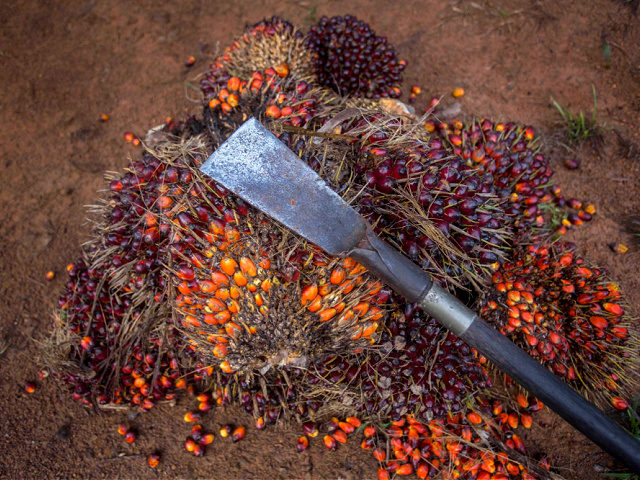The United States announced a ban on some Malaysian palm oil imports on Wednesday over allegations that one of the country’s leading producers uses forced labor.
Under a new withhold release order (WRO), U.S. Customs and Border Protection (CBP) will confiscate any palm oil arriving from the Malaysian Sime Darby Plantation Berhad.
According to one of the CBP’s executive directors, Ana Hinojosa, the decision follows an intensive, months-long investigation into the plantation, which found evidence that “reasonably indicates” abuse ranging from physical and sexual violence to debt bondage and restrictions on movement.
“Importers should know that there are reputational, financial and legal risks associated with importing goods made by forced labor into the United States,” Hinojosa said in a telephone press briefing with journalists.
“This Withhold Release Order demonstrates how essential it is for Americans to research the origins of the everyday products that they purchase,” added Mark Morgan, CBP’s acting commissioner. “American consumers can help end modern slavery by choosing to buy products they know are ethically and humanely sourced.”
Sime Darby said in a statement Thursday that it was reviewing the order to better understand the issues at hand and work with the agency to address the relevant concerns.
“We are currently reviewing the CBP’s news release in order to better understand the potential impact, if any, of the Withhold Release Order,” the statement read. “The allegations made suggest a breach in the implementation of (Sime Darby’s) own strict policies. The company is committed to combating forced labour and has robust policies to protect workers’ rights.”
This is the second time this year that the U.S. has imposed a WRO against a Malaysian company. In September, they similarly announced a block on all imports from FGV Holdings Berhad, one of Malaysia’s largest palm oil companies that works closely with the consumer goods giant Procter & Gamble.
“We would urge the U.S. importing community again to do their due diligence,” warned Brenda Smith, executive assistant commissioner at the CBP at the time. “We would also encourage U.S. consumers to ask questions about where their products come from.”
Malaysia is the world’s second-largest producer of palm oil, which can be used for everything from food products and cosmetics to biodiesel and industrial process. Along with Indonesia, the two countries control some 85 percent of the global market worth approximately $65 billion. In the fiscal year 2020, the U.S. imported some $410 million of crude palm oil from Malaysia, accounting for around a third of the total value of market exports.

COMMENTS
Please let us know if you're having issues with commenting.